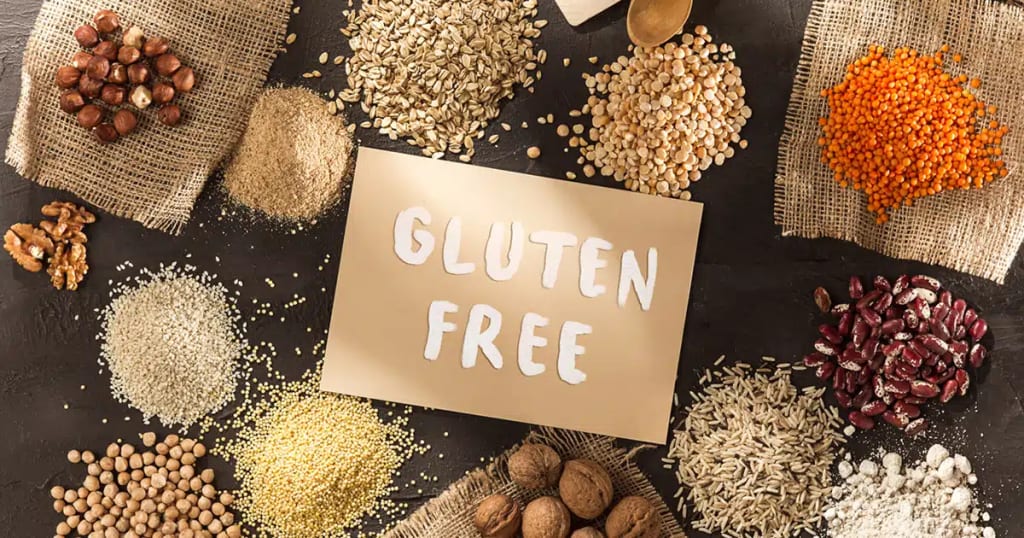Starting your day with a nutritious, satisfying breakfast is crucial for maintaining stable blood sugar levels and supporting your overall health journey. When you’re committed to reducing sugar intake or following a clean eating lifestyle, finding delicious alternatives to traditional breakfast favorites can feel challenging. That’s where these gluten-free almond flour pancakes come in – a wholesome, protein-rich option that proves you don’t have to sacrifice taste for health.
These fluffy, golden pancakes deliver all the comfort of a classic breakfast while supporting your sugar detox goals. Made with nutrient-dense almond flour and naturally sweetened ingredients, they provide sustained energy without the blood sugar spikes associated with conventional pancakes loaded with refined flour and sugar.
What Is Gluten-Free Cooking and Why It Matters?

Traditional pancakes rely heavily on wheat flour, which contains gluten – a protein that can cause digestive issues for many people and contributes to inflammation in sensitive individuals. Beyond gluten concerns, conventional pancake recipes typically include refined sugars and processed ingredients that can derail your health goals.
Our gluten-free approach transforms this beloved breakfast staple into a nutrient-powerhouse that aligns with sugar-free, keto, and paleo lifestyles. By using almond flour as our base, we create pancakes that are naturally higher in protein, healthy fats, and essential nutrients while maintaining the satisfying texture you crave.
The beauty of gluten-free baking lies in exploring alternative flours that offer superior nutritional profiles. Almond flour, derived from blanched almonds, provides vitamin E, magnesium, and heart-healthy monounsaturated fats that support sustained energy and satiety.
Health Benefits

These gluten-free pancakes offer impressive nutritional advantages that support your wellness journey. Almond flour serves as an excellent source of plant-based protein, containing all essential amino acids your body needs for muscle maintenance and metabolic function. According to nutritional research, almonds are rich in vitamin E, a powerful antioxidant that protects cells from oxidative damage.
The healthy fats in almond flour help slow digestion, preventing the rapid blood sugar fluctuations common with traditional pancakes. This makes them ideal for anyone following a low-glycemic approach to eating, as they have a significantly lower glycemic index compared to wheat-based alternatives.
Additionally, these pancakes fit seamlessly into various dietary approaches including ketogenic, paleo, and diabetic-friendly meal plans. The combination of protein, healthy fats, and minimal natural sweeteners creates a balanced macronutrient profile that supports stable energy levels throughout your morning.
The eggs in this recipe contribute high-quality complete protein and choline, essential for brain function and cellular health. When you choose organic, pasture-raised eggs, you’re also getting higher levels of omega-3 fatty acids and fat-soluble vitamins.
Challenges and Limitations
Working with gluten-free ingredients does present some unique considerations. Almond flour behaves differently than wheat flour, creating a denser texture that some people need time to appreciate. The absence of gluten means less structural binding, so these pancakes require gentle handling and proper technique for optimal results.
Cost can be a factor, as almond flour typically costs more than conventional wheat flour. However, the nutritional density and satiety factor often mean you’ll feel satisfied with smaller portions, helping offset the higher ingredient cost.
Some people may experience digestive sensitivity to large amounts of nuts, so it’s wise to start with smaller servings if you’re new to almond flour-based recipes. Those with tree nut allergies should avoid this recipe entirely and consider alternatives like coconut flour or sunflower seed flour.
Storage is another consideration – almond flour is more perishable than wheat flour due to its higher fat content. Keep it refrigerated or frozen to maintain freshness and prevent rancidity.
Tips and Trends
The world of gluten-free cooking continues evolving with innovative ingredients and techniques. AI-powered meal planning apps now help create personalized gluten-free meal schedules that align with your specific dietary goals and preferences, making it easier than ever to maintain consistency with healthy eating.
Popular sugar-free alternatives like monk fruit sweetener, erythritol, and stevia have revolutionized gluten-free baking, allowing for naturally sweet treats without compromising blood sugar stability. These sweeteners work particularly well in pancake recipes, providing the sweetness you crave without the metabolic disruption.
Kitchen tools designed specifically for gluten-free cooking, such as dedicated mixing bowls and measuring tools, help prevent cross-contamination for those with celiac disease. Digital kitchen scales ensure precise measurements, which is especially important when working with alternative flours that behave differently than wheat flour.
Batch cooking and freezing gluten-free pancakes has become a popular meal prep strategy. These pancakes freeze beautifully and can be reheated in a toaster or oven for quick, healthy breakfasts throughout the week.
FAQ

Question: Can I substitute coconut flour for almond flour in this gluten-free recipe?
Answer: Coconut flour absorbs much more liquid than almond flour, so you would need only about 1/2 cup coconut flour and additional liquid. The texture will be different, more cake-like than these almond flour pancakes.
Question: Are these gluten-free pancakes suitable for a ketogenic diet?
Answer: Yes, these pancakes fit well within keto macros. Each serving contains approximately 4-5 net carbs, making them an excellent low-carb breakfast option when paired with sugar-free syrup or fresh berries.
Question: How do I prevent my gluten-free pancakes from falling apart when flipping?
Answer: Let the batter rest for 5 minutes before cooking to allow the almond flour to hydrate fully. Cook on medium-low heat and wait until bubbles form and edges are set before attempting to flip. Use a thin, wide spatula for best results.
Question: Can I make these pancakes dairy-free and still maintain the gluten-free benefits?
Answer: Absolutely. Replace any butter with coconut oil and ensure your almond milk is unsweetened. The pancakes will maintain their gluten-free properties and nutritional benefits while being suitable for dairy-sensitive individuals.
Question: How long do leftover gluten-free pancakes stay fresh?
Answer: Store cooled pancakes in an airtight container in the refrigerator for up to 4 days. For longer storage, freeze them for up to 3 months. Reheat in a toaster, oven, or microwave until warmed through.
Conclusion

These gluten-free almond flour pancakes prove that healthy eating doesn’t require sacrificing the foods you love. By choosing nutrient-dense ingredients and natural sweeteners, you create a breakfast that supports your sugar detox goals while delivering exceptional taste and satisfaction.
The combination of protein, healthy fats, and minimal carbohydrates makes these pancakes an ideal choice for anyone seeking stable energy and sustained satiety. Whether you’re managing blood sugar, following a specific dietary protocol, or simply wanting to nourish your body with wholesome ingredients, this recipe delivers on all fronts.
We encourage you to try these pancakes and discover how delicious healthy eating can be. Share your variations and results with the Sugar Detox Lab community, and explore our extensive collection of sugar-free recipes designed to support your wellness journey. Subscribe to our newsletter for weekly healthy recipe inspiration and practical tips for maintaining a sugar-free lifestyle.







